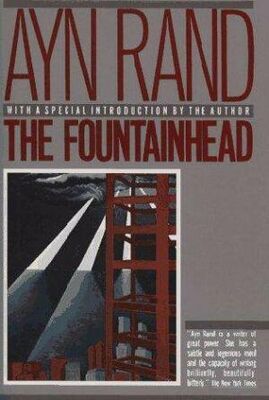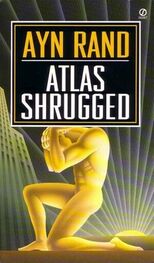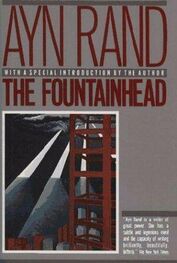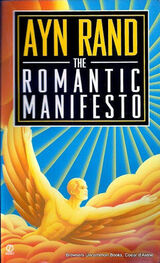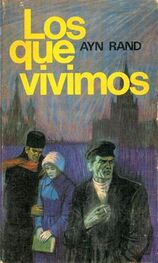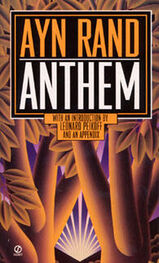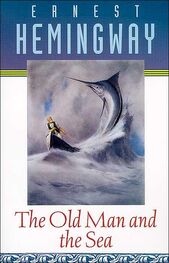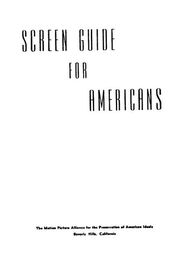"If you consider the behavior of the world at present and the disaster toward which it is moving you might find the undertaking preposterous. The age of the skyscraper is gone. This is the age of the housing project. Which is always a prelude to the age of the cave. But you are not afraid of a gesture against the whole world. This will be the last skyscraper ever built in New York. It is proper that it should be so. The last achievement of man on earth before mankind destroys itself."
"Mankind will never destroy itself, Mr. Wynand. Nor should it think of itself as destroyed. Not so long as it does things such as this."
"As what?"
"As the Wynand Building."
"That is up to you. Dead things — such as the Banner — are only the financial fertilizer that will make it possible. It is their proper function."
He picked up his copy of the contract, folded it and put it, with a precise gesture, into his inside coat pocket. He said, with no change in the tone of his voice:
"I told you once that this building was to be a monument to my life. There is nothing to commemorate now. The Wynand Building will have nothing — except what you give it."
He rose to his feet, indicating that the interview was ended. Roark got up and inclined his head in parting. He held his head down a moment longer than a formal bow required.
At the door he stopped and turned. Wynand stood behind his desk without moving. They looked at each other.
Wynand said:
"Build it as a monument to that spirit which is yours ... and could have been mine."
ON A spring day, eighteen months later, Dominique walked to the construction site of the Wynand Building.
She looked at the skyscrapers of the city. They rose from unexpected spots, out of the low roof lines. They had a kind of startling suddenness, as if they had sprung up the second before she saw them and she had caught the last thrust of the motion; as if, were she to turn away and look again fast enough, she would catch them in the act of springing.
She turned a corner of Hell's Kitchen and came to the vast cleared tract.
Machines were crawling over the torn earth, grading the future park. From its center, the skeleton of the Wynand Building rose, completed, to the sky. The top part of the frame still hung naked, an intercrossed cage of steel. Glass and masonry had followed its rise, covering the rest of the long streak slashed through space.
She thought: They say the heart of the earth is made of fire. It is held imprisoned and silent. But at times it breaks through the clay, the iron, the granite, and shoots out to freedom. Then it becomes a thing like this.
She walked to the building. A wooden fence surrounded its lower stories. The fence was bright with large signs advertising the names of the firms who had supplied materials for the tallest structure in the world. "Steel by National Steel, Inc." "Glass by Ludlow." "Electrical Equipment by Wells-Clairmont." "Elevators by Kessler, Inc." "Nash & Dunning, Contractors."
She stopped. She saw an object she had never noticed before. The sight was like the touch of a hand on her forehead, the hand of those figures in legend who had the power to heal. She had not known Henry Cameron and she had not heard him say it, but what she felt now was as if she were hearing it: "And I know that if you carry these words through to the end, it will be a victory, Howard, not just for you, but for something that should win, that moves the world — and never wins acknowledgment. It will vindicate so many who have fallen before you, who have suffered as you will suffer."
She saw, on the fence surrounding New York's greatest building, a small tin plate bearing the words:
"Howard Roark, Architect"
She walked to the superintendent's shed. She had come here often to call for Roark, to watch the progress of construction. But there was a new man in the shed who did not know her. She asked for Roark.
"Mr. Roark is way up on top by the water tank. Who's calling, ma'am?"
"Mrs. Roark," she answered.
The man found the superintendent who let her ride the outside hoist, as she always did — a few planks with a rope for a railing, that rose up the side of the building.
She stood, her hand lifted and closed about a cable, her high heels poised firmly on the planks. The planks shuddered, a current of air pressed her skirt to her body, and she saw the ground dropping softly away from her.
She rose above the broad panes of shop windows. The channels of streets grew deeper, sinking. She rose above the marquees of movie theaters, black mats held by spirals of color. Office windows streamed past her, long belts of glass running down. The squat hulks of warehouses vanished, sinking with the treasures they guarded. Hotel towers slanted, like the spokes of an opening fan, and folded over. The fuming matchsticks were factory stacks and the moving gray squares were cars. The sun made lighthouses of peaked summits, they reeled, flashing long white rays over the city. The city spread out, marching in angular rows to the rivers. It stood held between two thin black arms of water. It leaped across and rolled away to a haze of plains and sky.
Flat roofs descended like pedals pressing the buildings down, out of the way of her flight. She went past the cubes of glass that held dining rooms, bedrooms and nurseries. She saw roof gardens float down like handkerchiefs spread on the wind. Skyscrapers raced her and were left behind. The planks under her feet shot past the antennae of radio stations.
The hoist swung like a pendulum above the city. It sped against the side of the building. It had passed the line where the masonry ended behind her. There was nothing behind her now but steel ligaments and space. She felt the height pressing against her eardrums. The sun filled her eyes. The air beat against her raised chin.
She saw him standing above her, on the top platform of the Wynand Building. He waved to her.
The line of the ocean cut the sky. The ocean mounted as the city descended. She passed the pinnacles of bank buildings. She passed the crowns of courthouses. She rose above the spires of churches.
Then there was only the ocean and the sky and the figure of Howard Roark.
